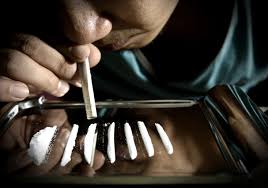
Breaking News
 Backed by Tech Billionaires, Silicon Valley Startup Quietly Weighs Plan...
Backed by Tech Billionaires, Silicon Valley Startup Quietly Weighs Plan...
 Dentistry Lies Things Your Dentist Won't Tell You!
Dentistry Lies Things Your Dentist Won't Tell You!
 Two massive quakes in 48 hours spark 'megaquake week' warnings
Two massive quakes in 48 hours spark 'megaquake week' warnings
 America's Rapidly Growing Happiness Deficit
America's Rapidly Growing Happiness Deficit
Top Tech News
 This tiny dev board is packed with features for ambitious makers
This tiny dev board is packed with features for ambitious makers
 Scientists Discover Gel to Regrow Tooth Enamel
Scientists Discover Gel to Regrow Tooth Enamel
 Vitamin C and Dandelion Root Killing Cancer Cells -- as Former CDC Director Calls for COVID-19...
Vitamin C and Dandelion Root Killing Cancer Cells -- as Former CDC Director Calls for COVID-19...
 Galactic Brain: US firm plans space-based data centers, power grid to challenge China
Galactic Brain: US firm plans space-based data centers, power grid to challenge China
 A microbial cleanup for glyphosate just earned a patent. Here's why that matters
A microbial cleanup for glyphosate just earned a patent. Here's why that matters
 Japan Breaks Internet Speed Record with 5 Million Times Faster Data Transfer
Japan Breaks Internet Speed Record with 5 Million Times Faster Data Transfer
 Advanced Propulsion Resources Part 1 of 2
Advanced Propulsion Resources Part 1 of 2
 PulsarFusion a forward-thinking UK aerospace company, is pushing the boundaries of space travel...
PulsarFusion a forward-thinking UK aerospace company, is pushing the boundaries of space travel...
 Dinky little laser box throws big-screen entertainment from inches away
Dinky little laser box throws big-screen entertainment from inches away
 'World's first' sodium-ion flashlight shines bright even at -40 ºF
'World's first' sodium-ion flashlight shines bright even at -40 ºF
Mexico Judge Approves Recreational Cocaine Use in Landmark Ruling, Cites Drug's Ability to Provi

A judge in Mexico has approved two people to use cocaine recreationally in what has been described as a historic step toward ending the country's deadly "war on drugs."
In the first ruling of its kind, the district court in Mexico City granted permission for the pair to "possess, transport and use cocaine"—but not sell it—following an injunction request by Mexico United Against Crime.
"We have been working for a safer, more just and peaceful Mexico for years, and with this case we insist on the need to stop criminalizing users of drugs other than marijuana and design better public policies that explore all available options, including the regulation," Lisa Sánchez, director of MUAC, said in a statement.
According to Mexico Daily News, the judge imposed a string of stipulations for the pair in order to allow them to use cocaine. They include limiting their intake to 500 milligrams per day and not working, driving or operating heavy machinery while under the influence. They are also not allowed to take the drug in public, in the presence of children, or encourage others to consume it.
In his ruling, judge Víctor Octavio Luna Escobedo said that recreational use of cocaine has many benefits, including "tension relief, the intensification of perceptions and the desire [to have] new personal and spiritual experiences."
According to the AFP news agency, Mexico's national health regulator—the Federal Commission for the Protection against Sanitary Risk—is seeking to block the judge's order, which was handed down in May. The decision will also be reviewed by a panel of judges at a higher court.
"These cases constitute a further step towards a new drug policy that allows us to build a safer, more just and peaceful Mexico," MUAC added in a statement.
Mexico's President Andrés Manuel López Obrador has promised radical changes in a bid to end the war on drugs in the country, which kills thousands every year.
Obrador, a left-wing politician who took office in December, argued the country should decriminalize all drugs in order to take power away from the cartels and criminal gangs.




